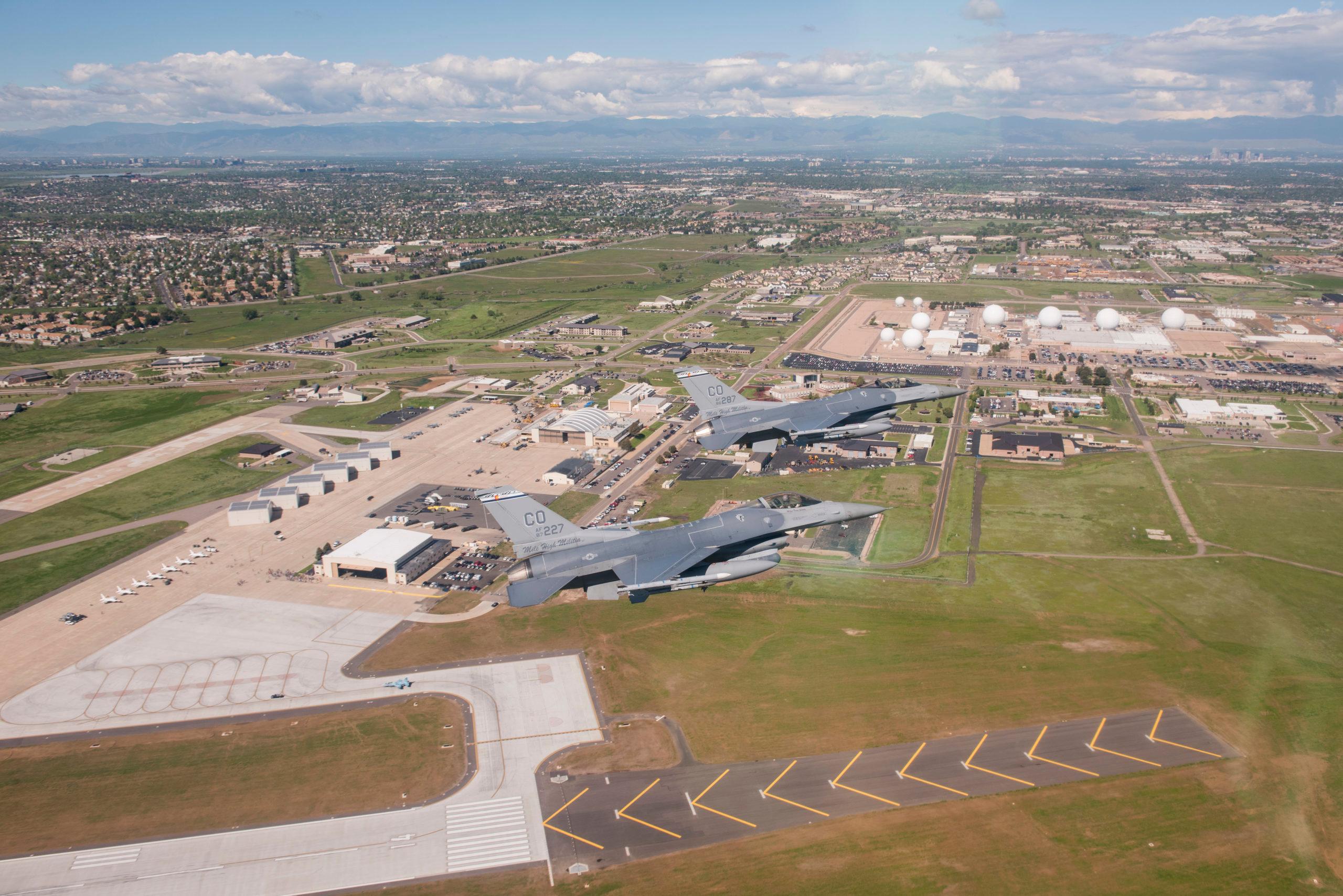
Gov. Jared Polis is continuing his push to stop the Pentagon from unilaterally shifting Air National Guard units focused on space operations into the U.S. Space Force.
Polis said he worries the move could result in people who are critical to the space aspects of national defense leaving Colorado.
“Many of them are also important people who work in our aerospace sector in their day jobs and help even in their civilian jobs improve military readiness,” Polis told CPR News. “It's a bit of a power play that they are engaged in, to the detriment of the National Guard, the governors, the states, and of course, readiness in the space domain which is so critical.”
Polis helped lead a letter from the National Governors Association, where he is the vice-chair, opposed to the Department of Defense’s Legislative Proposal 480, which would allow the Space Force to absorb about 14 guard units without following the current law that requires governors’ approval to make changes to the National Guard in their states.
The leaders of 52 governors of states and territories also signed on.
“National Guard assets are critical components of states’ and territories’ responses to crises. Governors must maintain full authority as Commanders in Chief of these assets to effectively protect operational readiness and America’s communities,” they wrote in the letter. Only two governors did not sign – Florida’s Ron DeSantis and Texas’. Greg Abbott.
The change would affect about 1,000 people in units across seven states, including Colorado, Alaska, California, and Florida.
Polis pointed to the strong bipartisan opposition across the country to the Pentagon’s plan as a sign that even states not impacted want to “avoid this dangerous precedent” by the change.
This NGA letter comes weeks after he penned his own to Secretary of Defense Lloyd Austin opposing the proposed change. “This action would threaten the ability of the National Guard to serve as the operational combat reserve for national security missions as well as its ability to support domestic emergencies. Both of these outcomes are unacceptable,” he wrote then.
Polis and the governors have some Colorado Congressional support.
Democratic Rep. Jason Crow and Sens. Michael Bennet and John Hickenlooper support the retraction of the Pentagon’s legislative proposal, which they described as “flawed.”
“At a time when the US should be going above and beyond to outcompete our adversaries in space, LP 480 compromises Colorado’s Guard members serving that critical mission and holds us back,” Crow said in a statement.
“Our National Guard service members respond to their state’s unique needs and help make our country safer. It’s been the duty of governors for over a century to maintain that readiness, and any limit on this long-standing tradition would impair that ability,” said Hickenlooper, a former governor himself.
Air Force Secretary Frank Kendall told a Senate panel in late March that this was a one-off move brought about because of the creation of the Space Force.
“It’s a unique situation. There’s absolutely no intention to make any other changes, moving things out of the Guard,” he said.
Crow and retiring GOP Rep. Doug Lamborn have introduced a bill to create a Space Force National Guard, without taking on units from the Air National Guard, but Congress has yet to move on the idea. Instead, it authorized a study.
Meanwhile, Congress authorized Space Force troops to switch between full-time and part-time work to give Guardians more flexibility, since there is currently no Reserve or Guard component.








